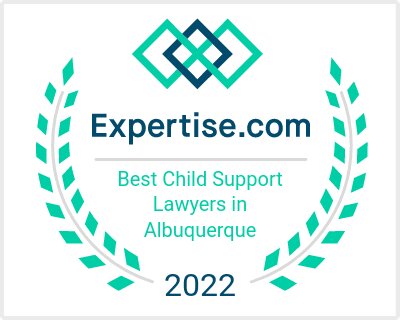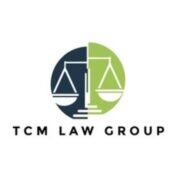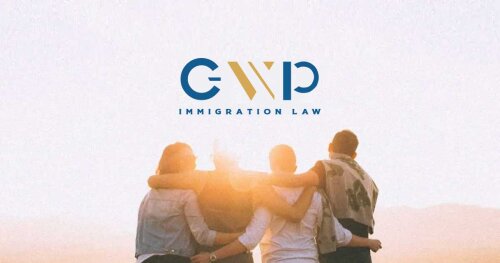Best Child Abuse Lawyers in New Mexico
Share your needs with us, get contacted by law firms.
Free. Takes 2 min.
Free Guide to Hiring a Family Lawyer
Or refine your search by selecting a city:
List of the best lawyers in New Mexico, United States
About Child Abuse Law in New Mexico, United States
Child abuse is a serious crime and public health issue in New Mexico. It involves any act or series of acts by a parent, caregiver, or another person in a custodial role that results in harm, potential harm, or threat of harm to a child. In New Mexico, child abuse laws are designed to protect minors under the age of 18 from physical abuse, emotional abuse, sexual abuse, and neglect. Reports of child abuse are taken seriously by law enforcement and Child Protective Services, and can result in both criminal charges and civil interventions to ensure the wellbeing of the child.
Why You May Need a Lawyer
There are several situations where legal help is critical in child abuse cases. If you are wrongfully accused of child abuse, a lawyer can defend your rights and work to protect your reputation and freedom. For parents or guardians who suspect their child is being abused, a lawyer can guide you through filing reports, obtaining protective orders, and navigating the complexities of the legal system. Child abuse cases often involve complex investigations and interactions with government agencies, so legal representation can be vital whether you are defending against allegations, seeking protective action, or involved as a witness or mandated reporter.
Local Laws Overview
In New Mexico, child abuse is addressed under both criminal and civil statutes. The key law is New Mexico Statutes Annotated Section 30-6-1, which defines child abuse as knowingly, intentionally, or negligently, and without justifiable cause, causing or permitting a child to be placed in a situation that may endanger their life or health. Child abuse can be charged as a felony, with penalties increasing if the abuse results in serious physical harm or death. New Mexico law also states that certain professionals, such as teachers, doctors, and social workers, are mandated reporters, which means they are required to report suspected abuse to authorities. Child Protective Services (CPS) investigates most reports and may remove children from unsafe environments. Juvenile courts have authority to enforce child protections, issue protective orders, and oversee custody decisions related to child welfare.
Frequently Asked Questions
What is considered child abuse in New Mexico?
Child abuse includes physical harm, sexual abuse, emotional abuse, abandonment, and neglect of basic needs such as food, clothing, shelter, education, and medical care.
Who is required to report suspected child abuse?
All professionals who have regular contact with children, such as teachers, healthcare providers, and law enforcement, are mandated reporters under New Mexico law. Any person who suspects child abuse is encouraged to report it.
What happens after child abuse is reported?
Reports are typically investigated by Child Protective Services and law enforcement. If the child is in immediate danger, authorities may remove them from the home and file for court protection.
What are the potential penalties for child abuse in New Mexico?
Penalties vary based on the severity of the abuse. Child abuse resulting in great bodily harm or death is a first-degree felony and can result in significant prison time.
Can someone be charged with child abuse for neglect?
Yes. Neglect, which includes failure to provide necessary care and supervision, is considered a form of child abuse under New Mexico law.
How can someone defend against false allegations of child abuse?
Hiring an experienced attorney is critical. They can help gather evidence, interview witnesses, and represent your interests in court.
Can child custody be affected by child abuse allegations?
Yes. Courts prioritize the child's safety and may limit or revoke custody or visitation rights if abuse is substantiated.
Are there time limits for prosecuting child abuse crimes?
Certain child abuse crimes, especially those involving sexual abuse, may have extended statutes of limitations, allowing prosecution years after the alleged crime.
What rights do children have if they are victims of abuse?
Children have the right to protection from harm, medical care, counseling, and safe placement if removed from their home.
How can I get help if I suspect a child is being abused?
Contact local authorities or the New Mexico Children, Youth, and Families Department (CYFD) immediately. You may also consult with an attorney for guidance on how to move forward.
Additional Resources
If you or someone you know is seeking help with child abuse issues in New Mexico, the following resources can offer support and information:
- New Mexico Children, Youth, and Families Department (CYFD)
- New Mexico Legal Aid
- Child Protective Services (CPS) - Local offices
- New Mexico Coalition of Sexual Assault Programs
- Local law enforcement agencies
- National Child Abuse Hotline (to connect with New Mexico services)
- Victim advocacy organizations throughout the state
Next Steps
If you need legal assistance regarding a child abuse issue in New Mexico, consider these steps:
- Document any evidence or information related to the suspected abuse, including photographs, messages, and witness statements.
- Contact law enforcement or CYFD immediately if a child is in danger.
- Consult with a qualified attorney who specializes in child abuse or family law. Legal professionals can explain your rights, help you file necessary reports, and represent you in hearings or court proceedings.
- Follow up with support services and counseling for yourself or the child involved, as these cases can be emotionally challenging.
Legal matters involving child abuse are complex and sensitive. Getting help from skilled professionals is the best way to protect your rights and the wellbeing of the child involved.
Lawzana helps you find the best lawyers and law firms in New Mexico through a curated and pre-screened list of qualified legal professionals. Our platform offers rankings and detailed profiles of attorneys and law firms, allowing you to compare based on practice areas, including Child Abuse, experience, and client feedback.
Each profile includes a description of the firm's areas of practice, client reviews, team members and partners, year of establishment, spoken languages, office locations, contact information, social media presence, and any published articles or resources. Most firms on our platform speak English and are experienced in both local and international legal matters.
Get a quote from top-rated law firms in New Mexico, United States — quickly, securely, and without unnecessary hassle.
Disclaimer:
The information provided on this page is for general informational purposes only and does not constitute legal advice. While we strive to ensure the accuracy and relevance of the content, legal information may change over time, and interpretations of the law can vary. You should always consult with a qualified legal professional for advice specific to your situation.
We disclaim all liability for actions taken or not taken based on the content of this page. If you believe any information is incorrect or outdated, please contact us, and we will review and update it where appropriate.
Browse child abuse law firms by city in New Mexico
Refine your search by selecting a city.















